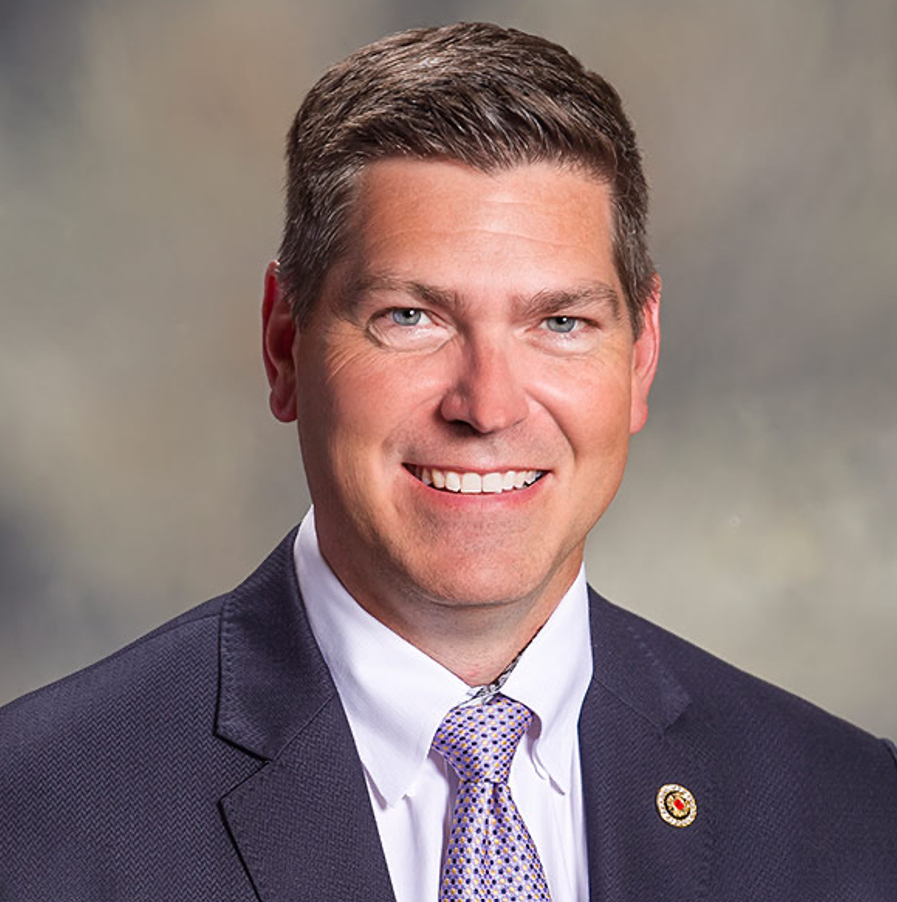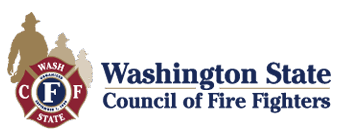
The rights and benefits firefighters rely on today exist because those who came before them stood up for what was right. For Keven Rojecki of Local 1747 Puget Sound Firefighters, that same conviction has guided a lifelong career dedicated to service, advocacy, and leadership in the fire community.
Keven’s engagement began early: while still on probation, he was elected Political Action Director for IAFF Local 2919 SeaTac, later serving as Secretary-Treasurer (1994–1996) and President (1996–2000). Over the years, he has chaired numerous committees, served as Vice President of L1747 (2014–2015), and in 2023 was elected to his current office as President of L1747, representing more than 400 members of the Puget Sound Fire Fighters Union.
At the state level, Keven has been a strong advocate for firefighter health, safety, and legislative progress. As a WSCFF Legislative Liaison (2000–2010) and later 9th District Representative (2008–2022), he worked closely with lawmakers to improve labor rights, pensions, and public safety investments statewide.
Today, as Chair of the WSCFF Health & Safety Committee, Keven leads initiatives focused on cancer prevention, behavioral health, exposure reduction, and safe staffing, protecting the well-being of firefighters across our State.
Raised on Vashon Island, Keven spent several years in Kalispell, Montana, and began his fire service career in 1991 with the SeaTac City Fire Department (now Puget Sound Fire), where he continues to serve proudly as an Engineer.
Says WSCFF 4th District Representative Casey Yeager, “Keven Rojecki’s impact within the WSCFF over the past two decades is nothing short of remarkable. His unwavering commitment to workers’ rights and safety has made him a cornerstone of the organization, consistently leading initiatives that prioritize the welfare of firefighters and their families. Throughout his career, Keven has championed health and wellness programs and worked to break the stigma surrounding mental health in the fire service, recognizing that a healthy workforce is essential for effective emergency response. He’s also been a proactive voice in advancing safety standards and training programs, ensuring firefighters have the knowledge and tools to operate safely in high-risk environments.
Keven’s mentorship has inspired countless individuals within the fire service. His ability to uplift and empower others, coupled with his dedication to advocating for health and safety, has left a lasting legacy. He embodies the spirit of solidarity and collective strength, always ready to stand up for workers’ rights and the greater good. Keven Rojecki’s contributions to the WSCFF and the firefighting community are invaluable, and his passion for service continues to inspire those around him.”
Learn more about Keven and get inspired by a member who’s made positive impacts for firefighters:
What inspired you to join the fire service?
I was drawn to the fire service by a friend’s dad, who had retired from the LA County Fire Department. He inspired me to volunteer at my local fire department, which eventually led me back to the Seattle area after high school, where I became a resident volunteer and later was hired full-time.

What keeps you motivated in what you do with the union?
Our members and knowing that we genuinely make a difference. Whether it’s fighting for health and safety, protecting benefits, or standing beside a firefighter facing a cancer diagnosis, the work matters because it directly impacts lives. Seeing real outcomes from collective action keeps me motivated every day. I was the project lead for the update to Healthy In, Healthy Out and that lead me into working on the complete update of Wellness Fitness Initiative, which should be coming out in Spring 2026.

What got you involved with your local and the WSCFF?
Early into my first year of probation, I realized that real change happens through engagement. I started by getting involved at the local level with my 24-hour shift partner, John Madson, who was the Union President,and he directly got me involved, as our union was at odds with our administration at the time. Our fire department was very young at the time, and my first election was for Political Action Director, a newly created position to help manage the relationship with our City Council. That role was new to the local and I sought advice from Mike McGovern, Jimmy Cason, Pat McElligott, and others, which organically got me more involved.
What led you to serve on the Health & Safety Committee as Chair?
I’ve always believed that firefighter health and safety is foundational to everything we do. Serving as Chair allows me to focus on critical issues that impact members directly and (WSCFF President) Dennis Lawson appointed me to do it. I don’t know if anything led to this opportunity; it happened organically.
What does the Health and Safety Committee do for WSCFF members?
We advocate for and implement policies and programs that protect firefighter health and wellness. The committee serves as a resource for members and leadership, helping to ensure that departments have the tools, knowledge, and practices needed to keep firefighters safe throughout their careers.

What project or achievement with the WSCFF are you most proud of, and why?
One of the achievements I’m most proud of is helping advance Washington’s presumptive cancer laws for firefighters. Early in my career, lung cancer was the only condition recognized as job-related, leaving many members without critical protection. Through years of advocacy and collaboration, we’ve become national leaders in securing comprehensive presumptive coverage—expanding protections to include additional cancers and PTS. Our current WSCFF leadership has continued to build on this foundation, strengthening worker protections and ensuring these benefits evolve with the needs of our members. While there’s still work to do to reduce cancer risks in the fire service, these advancements ensure that firefighters and their families have meaningful security when facing occupational illnesses.

How have you seen member health and safety change over your career? What surprised you the most?
The cultural shift has been significant. When I started, discussions about cancer, behavioral health, and fitness were often sidelined. Today, these are core operational priorities. What surprised me most was how quickly the conversation evolved once we started backing it with data, advocacy, and legislation.
What advice would you give to new members starting out?
Invest in your union and get involved early. The union is only as strong as its members, and your voice matters from day one.

What would you say to longtime members who aren’t very involved?
Your experience and perspective are invaluable. Getting engaged doesn’t always mean taking on a big role—sometimes it’s mentoring newer members, showing up to meetings, or sharing institutional knowledge. Every bit of involvement strengthens the collective. Not everyone can show up every day, but each of us can give a day or two of our time to help advance the role and responsibility our unions provide to members.
What do you value most about being part of the WSCFF community?
The solidarity. Whether it’s legislative advocacy, health initiatives, or supporting a member in crisis, we show up for each other. That sense of unity is powerful.

Outside of work, how do you like to spend your time?
I enjoy traveling as our kids live in Boston, Salt Lake City and Hawaii, family, relaxing at our cabin and spending time outdoors in the Pacific Northwest. Free time is not easy to find right now!

Was there a moment or experience in your career that shaped how you view health and safety for firefighters and EMS?
Several cancer cases among IAFF brothers Mark Noble, Dave Potter, and others early in my career profoundly impacted me. It made me realize that cultural change and advocacy weren’t optional; they were necessary to save lives. Mark was the first presumptive cancer approved by Labor & Industries after we changed the law in March 2002. Dave was the inspiration to improve that law as his employer was a driving reason for change.
As a WSCFF Legislative Liaison, what causes or legislative efforts were you most passionate about?
I’ve been passionate about presumptive coverage for cancer and illnesses and pension improvements. The 2002 and 2007 presumptive changes and the 2008 pension improvement created the pathway for additional LEOFF pension enhancements. These efforts directly affect firefighters’ longevity and quality of life.
Why is the WSCFF/IAFF important for firefighters?
The WSCFF and IAFF provide firefighters with a unified, powerful voice, locally, statewide, and nationally. They protect our rights, secure our benefits, and advocate for our health and safety in ways no individual could do alone.
____
Keven’s union advocacy and leadership over the years demonstrates that progress doesn’t happen by accident: it’s built through engagement, integrity, and the shared belief that every firefighter deserves a safe and dignified career. Thank you, Keven, for your continued work!

